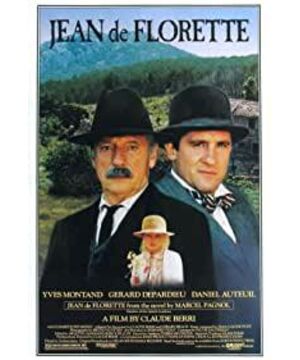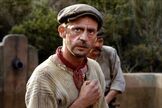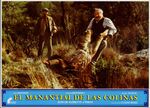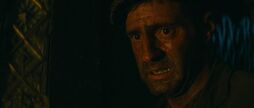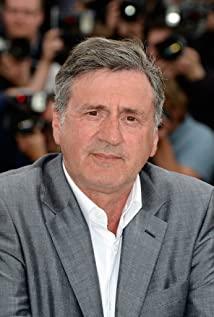The names of the upper and lower parts have the same structure in French: Jean de Florette and Manon des Sources. In French, de is used to define attributes. Literally translated, they are: Floré’s Jean, and Spring’s Manon.
The original novel was inspired by the original author Marcel Pagnol after he made a film called "Manon in the Spring" (yes, the same name as the current second one). The film was shot in 1952 and the novel was published. In 1963, it was a two-volume edition. This version of the movie in 1986 is an adaptation of the same name. The author bought a manor in the Provence-Alpes-Côte d’Azur region where the story took place in 1942, and hired people to grow carnations, so that the hired workers were exempted from forced work in Germany.
The story takes place in a mountain village in the Haute-Provence Alpes in the mid-1920s. This is a province in southeastern France, bordering Italy, with a dry climate and bushy calcareous wasteland. Artificial irrigation is necessary for growing fruits and vegetables.
The upper part is a story about a land with water sources. At first, Florey was Caesar's girlfriend, but the two were separated because Caesar joined the army abroad. Although he found out that she had abandoned herself and married someone else after returning to China, he could not forget this relationship throughout his life and was unmarried and childless. Jean—Jean is the son of Florey, in the eyes of old Caesar, he is the son of a woman who has turned his back on him.
When Caesar's sole heir, his nephew Yuglan, planned to use this land to grow carnations with high profitability and high water demand, he did not hesitate to make suggestions. First of all, they planned to negotiate with their neighbors to buy them for several thousand yuan, but they failed to reach a conclusion. They accidentally killed the other party. Fortunately, there was no evidence and no witnesses. This land became a legacy. Therefore, they did not hesitate to block the only available spring, intending to let the new owner of this land voluntarily give up and sell it at a low price. Let, as the heir, a camel, a foreigner from the city, an idealist, plan to flex his muscles on the land left to him by his mother (the original manor is his uncle), and live the thriving and beautiful country life he yearns for . The family is innocent, loves music, and constantly admires the scenery of the countryside. They are unaware of Hugo's deliberate win-win. Moreover, in the natural rejection of outsiders by the villagers, they have no willingness to make in-depth exchanges with the villagers.
The upper part finally died in the process of stubbornly and futilely searching for and digging water sources, and the widow and orphans were unable to support them, and his nephew and uncle successfully got this piece of land. They dig into the spring again impatiently, and the little girl finds out the scheme.
In the lower part, after a few years, Manon completed his own revenge. This is another story, a story about spring water. It's also about the source, the source (source means spring and source in French), and the source of one's own life experience.
We can say that the director wants to express the closedness of the countryside, the stubbornness of men, the insufficiency of idealists, the impermanence of fate or many other things, but his intentions are all diluted in the perfect narrative, and finally left an embarrassing one. s story. In short, this is a movie full of irrevocable details, very beautiful, very calm, and very worth watching.
View more about Jean de Florette reviews


